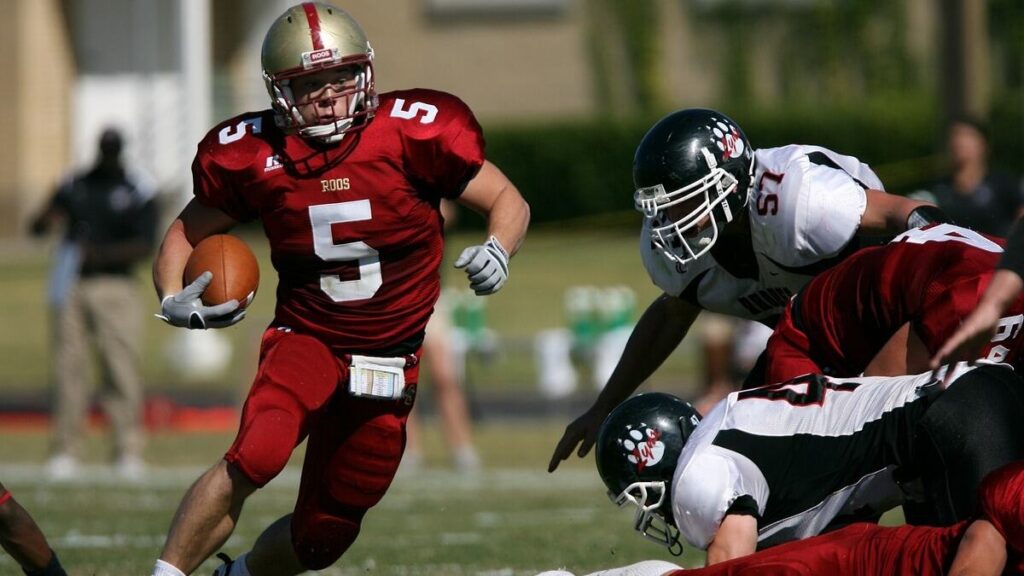Introduction
In recent years, the world of sports has experienced a revolution — and it’s not just about physical performance anymore. It’s about data, precision, and personalization. Behind the scenes, artificial intelligence (AI) is reshaping how athletes train, recover, and dominate their fields. But the real plot twist? The secret weapon of elite female athletes isn’t a new supplement or training shoe. It’s AI coaching.
- Introduction
- What is AI Coaching?
- Why Female Athletes Are Turning to AI
- Real-Life Stories: How AI Changed Female Athletes' Careers
- Personalized Training Like Never Before
- Injury Prevention and Recovery
- Boosting Confidence with Data-Driven Feedback
- Breaking Mental Barriers with AI Support
- Helping Coaches Understand Female Athletes Better
- Conclusion: The Future of Female Athletics is Powered by AI
We’re used to seeing sports tech evolve, but now, it’s becoming deeply personal. Especially for female athletes, who have historically been overlooked when it comes to personalized coaching strategies, AI is leveling the playing field. Imagine having a digital coach who understands your unique cycle, your peak performance times, your limits, and even your mindset. That’s what AI coaching offers — and it’s unlocking a whole new level of potential.
This isn’t just a trend; it’s a movement. From Olympians to everyday gym warriors, female athletes are embracing AI to train smarter, not harder. Let’s dive into how this secret weapon is turning ordinary routines into extraordinary results.
What is AI Coaching?
AI coaching is like having a super-smart, always-on assistant who knows you better than your best coach. It uses data — tons of it — collected from wearables, apps, and training logs. Then, it analyzes that data to help you improve. But not just generally — it gives you specific, personalized insights based on your body, performance, and goals.
For female athletes, this means their training isn’t modeled after men anymore. Let’s face it: most traditional training plans are designed based on male biology and performance patterns. But women’s bodies function differently — hormonally, biomechanically, and even psychologically. AI understands that. It factors in variables like hormonal cycles, recovery time, injury patterns, and more.
Through real-time feedback, AI coaching platforms can adjust workout intensity, recommend rest days, suggest nutrition changes, and even track emotional well-being. Whether it’s training for a marathon or just building strength post-pregnancy, AI delivers tailored advice — like having a sports scientist, nutritionist, and mental coach in your pocket.
That’s what makes AI coaching revolutionary. It’s personal, adaptive, and empowering, especially for female athletes who often juggle more variables than their male counterparts.
Why Female Athletes Are Turning to AI
Let’s be honest — female athletes face a unique set of challenges. From hormonal fluctuations to underrepresentation in sports science studies, their training needs often get lost in the noise. Many women have felt like their coaches don’t quite “get” their bodies. That’s where AI steps in, bringing science-backed, female-focused support to the forefront.
Take menstrual cycles, for example. These cycles affect strength, endurance, and recovery, yet they’ve been widely ignored in traditional coaching. AI coaching tools are changing that by tracking these patterns and adjusting workouts accordingly. No more powering through a high-intensity workout on a day when your body is screaming for rest.
Another reason? Consistency. Life can be unpredictable, and female athletes often balance multiple roles — athlete, mom, student, and professional. AI doesn’t judge. It adapts. If you miss a day or two, it recalibrates your plan, helping you stay on track without guilt.
One athlete shared how switching to AI coaching completely transformed her game. “I used to feel like I was failing if I couldn’t stick to the rigid plan my coach gave me,” she said. “Now, my AI coach adjusts based on how I feel. It’s liberating.”
The appeal is clear: AI brings customized, flexible coaching that respects the complexity of female biology and life rhythms. And when do you feel seen, understood, and supported? You perform better.
Real-Life Stories: How AI Changed Female Athletes’ Careers
Want proof that AI coaching works? Just ask the women using it. Take Maria, a professional triathlete who once struggled with overtraining and burnout. “My AI coach started warning me weeks before I hit a wall,” she explained. “It saw patterns in my sleep and heart rate I didn’t even notice. I backed off training just in time — and came back stronger.”
Or consider Lexi, a collegiate basketball player. Injuries kept derailing her progress until she switched to AI-assisted training. According to her, “It helped me understand how my knee mechanics changed after surgery.” We adjusted my form and pace, and I haven’t had a setback since.”
These are not isolated stories. Across the globe, female athletes at all levels — from high school competitors to elite professionals — are using AI to overcome setbacks, improve technique, and reach new heights.
It also helps women who are just starting. For new runners, lifters, or swimmers, AI offers a non-intimidating coach who teaches and adapts as you grow. No more Googling random workout plans that may or may not fit your needs. Just data-driven advice that evolves with you.
That’s the real magic: AI doesn’t replace coaches; it enhances them. It gives female athletes an edge, built on personalization, precision, and progress.
Personalized Training Like Never Before
Imagine waking up, and your fitness app says, “Based on your sleep, stress levels, and hormonal cycle, today’s a good day for light cardio and stretching.” That’s not the future — that’s the now.
AI coaching takes personalization to the next level, which is especially impactful for female athletes. While many men can follow a consistent 4-week strength program, women’s bodies may respond better to a cycle-synced plan. AI understands when you’re likely to be strongest (follicular phase), when to ease up (luteal phase), and when rest is best (menstrual phase).
It’s not just about workouts, either. Nutrition guidance is also part of the package. Craving carbs? AI knows that’s a sign of hormonal shifts and may recommend certain foods to balance your energy. Feeling sluggish? It might suggest hydration strategies or micronutrient boosts.
There’s also mental performance. Mood swings and emotional stress can mess with motivation. Some AI platforms now include emotional check-ins and mindfulness prompts — all based on your unique rhythm.
And when it comes to goal setting? AI keeps it real. If you’re progressing faster than expected, it raises the bar. If you hit a plateau, it finds the root cause and adjusts. No shame; it’s just a smart strategy.
That level of detail isn’t just helpful — it’s revolutionary. Finally, female athletes have a training system that respects their bodies, supports their goals, and evolves with them.
Injury Prevention and Recovery
Let’s talk about something every athlete fears — injuries. For female athletes, the stakes can be even higher. Studies show that women are more susceptible to certain injuries, like ACL tears, due to structural and hormonal differences. Here’s where AI coaching becomes a literal game-changer.
AI doesn’t just track your workouts; it monitors subtle signs of wear and tear. If your stride becomes uneven, your heart rate stays elevated too long, or your sleep is consistently off, AI can spot these red flags before you even feel anything is wrong. That early warning system? It’s like having a built-in sports medic.
And when injuries do happen, recovery becomes more intelligent. AI adjusts your rehab program daily based on mobility data, pain input, and even your psychological state. Instead of blindly following a standard rehab protocol, your AI coach evolves your plan every step of the way — just like a real-life performance specialist, but available 24/7. This is especially vital for female athletes, whose bodies may respond differently to certain exercises or timelines compared to men.
Take Jasmine, a semi-pro soccer player. After an ankle injury, her AI coaching app tailored her strength training to avoid load on the joint while maintaining cardiovascular fitness. “It was surreal,” she said. “My teammates were out for months after similar injuries. I came back in six weeks stronger than ever.”
This predictive and adaptive recovery doesn’t just speed up healing; it reduces the chance of re-injury — a huge deal for athletes whose careers can be derailed by a single wrong step. AI provides guidance on how hard to push when to hold back, and what kind of support tools (compression, sleep routines, supplements) might help most.
Beyond physical recovery, AI also plays a critical role in mental rehab. Injuries aren’t just about bones and muscles; they’re also deeply emotional. AI-driven platforms often incorporate mood trackers and mental health prompts, helping female athletes stay positive and focused even during downtime.
In short, AI doesn’t just prevent and treat injuries — it empowers athletes to bounce back smarter, not just faster. It’s like upgrading from a one-size-fits-all solution to a high-tech, personalized comeback plan. That level of care is exactly what female athletes have needed all along.
Boosting Confidence with Data-Driven Feedback
Confidence isn’t something you can fake in sports. You either have it, or you don’t. But what if your training system could help you build it from the ground up? That’s exactly what AI coaching does for female athletes — it turns uncertainty into clarity and fear into fuel.
When your AI coach says, “You’re improving your VO2 max,” or “Your vertical leap is up 2 inches,” that’s not hype — that’s data. And nothing builds belief like cold, hard facts. Women in sports often face self-doubt, partly because they’ve been left out of the science. AI puts them back in the center by showing proof of progress.
Let’s not forget the power of visualization. Many AI tools now show progress charts, strength gains, sleep quality, and recovery trends — and that visual story of success boosts motivation like nothing else. For female athletes who are often juggling life, work, and sport, those daily wins add up. They keep the fire burning.
And when something isn’t working? AI adjusts, explains, and adapts — never criticizes. This fosters a secure atmosphere in which errors are seen as a necessary component of learning rather than failure. Confidence grows when support is both smart and kind.
AI coaching becomes a cheerleader, analyst, and strategist rolled into one — empowering female athletes to believe in their strength with every step.
Breaking Mental Barriers with AI Support
Let’s face it — the mental game is just as tough as the physical one, especially for female athletes constantly navigating pressure, judgment, and self-doubt. Whether it’s societal expectations, body image issues, or lack of representation in elite sports, women face mental hurdles that can hold them back. Surprisingly, AI is becoming a powerful ally in this space, too.
Today’s top AI coaching platforms integrate psychological tools into their systems. These aren’t just generic motivational quotes — we’re talking personalized prompts, journaling reflections, breathing techniques, and even mindfulness tracking that responds to how you’re feeling day by day. It’s like therapy meets sports science.
What’s more impressive is how AI picks up on mood changes through data. If your sleep dips, heart rate variability increases, or you suddenly stop hitting milestones, the system might prompt you to reflect on your stress levels or check in with a mental health coach. This kind of holistic awareness isn’t just helpful — it’s revolutionary.
One elite sprinter shared how AI helped her overcome pre-race anxiety. “Every time I felt nervous before a meet, the app would guide me through calming techniques. Over time, my anxiety faded. I was able to race with joy again.”
This kind of support is vital. Mental fatigue, burnout, and emotional strain can sideline even the most talented athlete. By combining biofeedback with mental health tools, AI offers a full-circle solution — body and mind together.
And let’s be real: just knowing your AI coach is tracking everything can reduce mental load. You don’t have to overthink every decision.
That peace of mind is priceless for female athletes, and AI is delivering it in ways traditional coaching never could.
Helping Coaches Understand Female Athletes Better
Here’s a twist: AI coaching isn’t just helping female athletes — it’s helping their coaches become better, too. Historically, many coaches have lacked the tools or knowledge to train women effectively, not by choice but because most sports science has been focused on male bodies. AI is now flipping that script.
By collecting real-time data from female athletes, AI offers coaches deep insights they never had before. We’re talking about understanding hormonal shifts, tracking emotional stress, predicting injury risk, and even customizing nutrition plans based on a woman’s cycle. This makes coaching not only more informed — but also more empathetic.
For example, instead of pushing an athlete to train through PMS fatigue, a coach might back off intensity based on the AI’s recommendation. That kind of understanding builds trust and improves outcomes. And let’s be honest: better-informed coaches develop better athletes.
What’s exciting is that this doesn’t just benefit elite pros. Youth coaches, college trainers, and personal fitness instructors are starting to use AI dashboards that track menstrual health, performance trends, and recovery readiness. It’s helping them see patterns, ask better questions, and build smarter programs for their athletes.
Emma, a high school track coach, says AI changed the way she trains her team. “I used to treat everyone the same. Now I get alerts when one of my runners is at higher injury risk or low on recovery. We talk about it. The girls feel seen and heard.”
When AI becomes a teaching tool for coaches, the impact is exponential. Not only do athletes benefit, but the entire coaching culture shifts toward inclusion, personalization, and respect.
And that, in the end, is what female athletes deserve: support that sees them as individuals — not just numbers on a roster.
Conclusion: The Future of Female Athletics is Powered by AI
The secret’s out — the real edge for female athletes isn’t just grit, hustle, or natural talent. It’s AI coaching, and it’s changing everything.
From customized training that respects menstrual cycles to injury prevention that’s smarter than ever to mental health tools that support peak performance — AI is giving women in sports the tools they’ve always deserved but rarely received. This isn’t just tech for its sake. It’s tech that understands, adapts, and champions the complexity of the female body and mind.
We’ve heard the stories: the runner who returned stronger after injury, the basketball player who finally stayed consistent, and the high school coach who saw her team thrive. These aren’t one-offs — they’re the new norm.
And here’s the best part: this isn’t exclusive to the pros. Whether you’re a college athlete, a weekend warrior, or just someone starting a fitness journey, AI can be your coach, your guide, and your biggest supporter. The playing field is finally being leveled — with algorithms, insights, and empathy leading the way.
So, if you’re a female athlete wondering how to break through your plateau, prevent burnout, or just train smarter — don’t look further than your phone. Your future coach might already be waiting.
AI isn’t replacing the human side of sports. It’s enhancing it. And for women who’ve had to fight for recognition and resources, it’s about time.


